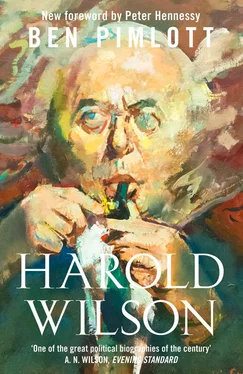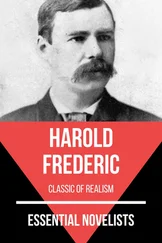There were not many entries, and the verdict was quickly reached. A small item in The Times on 18 March announced: ‘The judges have reported to the Vice-Chancellor that they have awarded the Gladstone Memorial Prize, 1936, to J. H. Wilson, Exhibitioner of Jesus College.’ It was a moment, as important as getting an award at Jesus, when the world changed. The Gladstone Prize was his first public distinction, a major one in Oxford, marking him out from his contemporaries not just in Jesus but in the University. Harold’s pleasure was unbounded, and so was Herbert’s, as the letters of congratulation arrived, including several from the Colne Valley and Huddersfield. Harold, in his joy, wrote to Helen Whelan, the class teacher who had taken an interest in him at Royds. She was deeply moved. ‘What a far cry from “James Harold” who protested vigorously against the “James”, to Mr Wilson winner of the Gladstone,’ she replied, affectionately and teasingly. ‘And yet in writing to say thank you for a singularly charming letter, I feel that I am almost more pleased to renew a friendship that has many happy memories than to tell my former monitor with what very real pleasure I read of his triumph … I should like to see you so much I feel tempted to appear in Oxford when your less elderly lady friends are not besieging you for tea.’ 86Ethel and Herbert motored down from the Wirral to hear Harold give the Prize Oration in the Sheldonian Theatre. Gladys came too, the admiring girlfriend, the only lady friend that mattered. ‘I felt very proud of him,’ she remembers. 87
In Oxford, people who had barely noticed Harold, now began to do so: from being a run-of-the-mill undergraduate from an inferior college, he became a man with possibilities. Cole asked him to give a paper to his discussion class, and complimented him generously afterwards. Harold glowed. ‘Cole says he agrees with it completely & is using some of my figures – which I left with him – to produce at the Econ. Advisory Council (of the Prime Minister)’, he wrote home in May, ‘as a very strong section of that (and also “The Times”) are in favour of the Macmillan Report suggestion which I attacked from start to finish, basing my attack on facts not prejudice’. 88He also gave a paper to the Jesus College Historical Society on ‘The Transport Revolution of the Nineteenth Century’, based on his study, which – according to the college magazine – added ‘a quite unheralded glamour to the economic problems of the day’. 89He had been elected Secretary of the Sankey Society, the college debating club, the previous December. In June, Lord Sankey himself, just retired as Lord Chancellor, and himself a Jesus man, attended the Society’s dinner as guest of honour, sat next to the Gladstone Prizeman and talked to him at length. When a fellow member of the Society told him about Wilson’s success, Lord Sankey warmly grasped Wilson by the hand, ‘& said he remembered the result, & had a good breakfast that morning. He says he always does when a Jesus man gets anything’. 90
Having acquired the taste for academic honours, Harold indulged it. At the beginning of his third year, he sat the competitive exam for the George Webb Medley Junior Economics Scholarship, worth £100 per annum, and won that too – giving him financial independence of his father. It was not an unexpected success: the Gladstone had already made his name in the University as an academic force to be reckoned with. Christopher Mayhew, elected President of the Union the same term, also entered for the Webb Medley. ‘You’re a bit optimistic,’ said a friend. ‘Don’t you know that Wilson of Jesus is in for it?’ 91
A key event in the fast-changing discipline of economics occurred in the second term of Harold’s second year, before he sat for the Webb Medley. The General Theory of Employment, Interest and Money by J. M. Keynes was published on 4 February 1936. Its appearance had long been heralded, and economists approached the publication date with excitement. Arthur Brown, already a Keynes enthusiast, went to Blackwell’s bookshop in Oxford and bought a copy the same day. 92Harold was also interested, though his response was more muted. He had yet to hear the Gladstone result, and he was short of cash; so he cast round for a benefactor. Fortunately, his twentieth birthday was coming up. At the beginning of March, he wrote home with instructions for Marjorie to buy him ‘J. M. Keynes’s bolt from the (light) blue’. It was a book, he explained, that he had to read, though he added ‘[an] Oxford don said to me that Keynes had no right to condemn the classical theory till he’d read a bit of it.’ 93
Wilson records in his memoirs that he read The General Theory before taking his final examination in 1937 94– a formidable undertaking for an undergraduate. Meanwhile, he had joined a select band of invited undergraduate members (who included Arthur Brown and Donald MacDougall, future director of the Department of Economic Affairs during Wilson’s premiership) of a research seminar on econometrics run by Redvers Opie and Jacob Marschak, where Keynes’s book was discussed. Wilson, however, was practical in his approach: The General Theory was not part of the syllabus, there had been no ‘Keynesian’ question in the 1936 exam papers, and at least one of the examiners for 1937 was known to be an anti-Keynesian. The new ideas, therefore, did not form part of the corpus of knowledge which he stuffed into his head.
Much was expected of him, and he was widely tipped as ‘the brightest prospect’ of his year for the PPE degree. 95‘His industry can only compel admiration,’ wrote one of his tutors in a testimonial for a couple of academic posts (which he did not get) shortly before his Finals. 96His methods were largely mechanical, though spiced with cunning. Swotting for his philosophy paper, he made a digest of Immanuel Kant’s Critique of Pure Reason , then made a digest of the digest, which he learnt by heart. 97The technique was remarkably effective. One of the examiners – his own economics tutor, Maurice Allen – maintained afterwards that although Wilson’s papers showed diligence, they lacked originality. They also indicated that the candidate had studied the dons who were going to mark his scripts, and played to their prejudices. 98Such a comment, however, was a grudging one, in view of Wilson’s performance. He obtained an outstanding First Class degree, with alphas on every paper. As Lord Longford (then Pakenham and himself a don) later observed, no prime minister since Wilson’s fellow Huddersfieldian, H. H. Asquith, had ever been able to boast such a good result in Schools. 99
Конец ознакомительного фрагмента.
Текст предоставлен ООО «ЛитРес».
Прочитайте эту книгу целиком, купив полную легальную версию на ЛитРес.
Безопасно оплатить книгу можно банковской картой Visa, MasterCard, Maestro, со счета мобильного телефона, с платежного терминала, в салоне МТС или Связной, через PayPal, WebMoney, Яндекс.Деньги, QIWI Кошелек, бонусными картами или другим удобным Вам способом.











